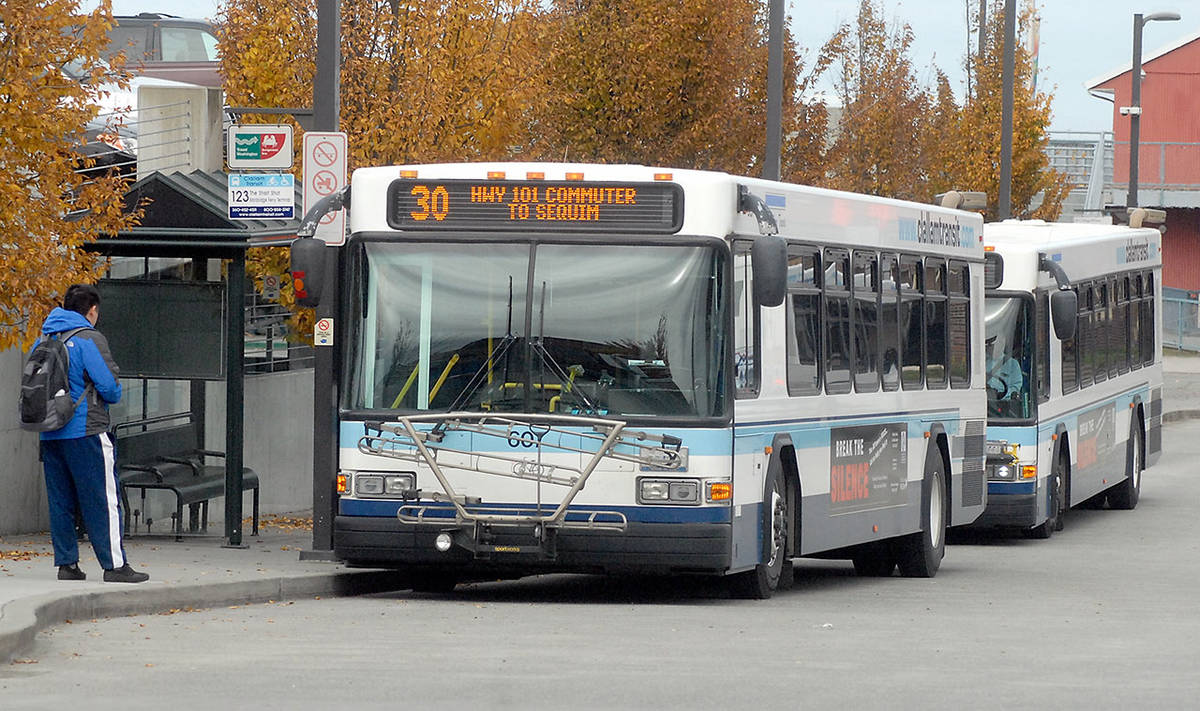State Initiative 976 would disrupt or diminish Clallam Transit service if approved Nov. 5, agency officials said.
Clallam Transit released on Oct. 23 an impact statement describing facts and impacts of the $30 car tabs initiative before voters in the general election.
Initiative 976 Impact Statement by Laura Foster on Scribd
I-976 would establish a flat $30 annual fee for most vehicle registrations and revoke or repeal other sources of funding for local and state transportation projects, including Clallam Transit.
It also would eliminate the 0.3 percent sales tax on vehicle purchases and $50 electric vehicle fee.
Proponents of the measure backed by perennial anti-tax initiative sponsor Tim Eyman have said it would repeal a “dishonest valuation schedule” and limit license tabs to a “flat, fair and reasonable” fee, according to the Secretary of State voter’s pamphlet.
Opponents have said I-976 would threaten transportation safety, harm communities and “devastate public transit” by cutting more than $4.2 billion in state and local transportation funding over six years.
According to Clallam Transit, the following “may be in jeopardy” if the initiative passes:
• Fixed route bus service.
• Paratransit services for the elderly and disabled.
• Vanpool program.
• Current planned expansion of the Strait Shot service to the Bainbridge Island Ferry Terminal.
• Bus and van replacements.
“If Initiative 976 is approved by the voters, funding for the services and vehicles identified above may be disrupted and diminished,” the statement said.
“Clallam Transit System would not be able to sustain its current level of service.”
The Clallam Transit board took an unanimous position against I-976 at its Oct. 16 board meeting and directed staff to create a neutral fact sheet about the measure.
No members of the public attended the meeting last week to speak for or against the initiative, which appeared on the agenda as required by statute for board consideration.
The Clallam Transit impact statement does not list dollar amounts associated with the passage of I-976.
“It is difficult to determine the full effects of the initiative now because its implementation will be determined by future decisions of the Washington State Legislature and the resolution of any potential legal challenges,” the statement says.
“Once a clear picture of the funding reduction is known, the amount and location of service cuts would be decided by the Clallam Transit System Board. In the meantime, this agency will maintain existing levels of service.”
The state multi-modal account, which provides funding for agencies like Clallam Transit, is projected to lose $1.5 billion over two years if I-976 is approved, officials said.
State funding accounts for 15 percent to 18 percent of Clallam Transit’s operating costs and 100 percent of its paratransit bus purchases and major equipment purchases, according to the statement.
Clallam Transit ordered 10 heavy duty buses this year thanks to a $1.3 million state rural mobility grant and $2.7 million in state-administered Federal Transit Administration funding.
Those 10 coaches will be manufactured in February regardless of the outcome of the initiative.
Meanwhile, the Jefferson Transit Authority board also voted unanimously to oppose I-976.
Jefferson Transit released a statement Oct. 11 that said the agency does not want to see a reduction in public transportation funding.



